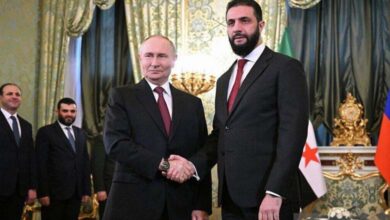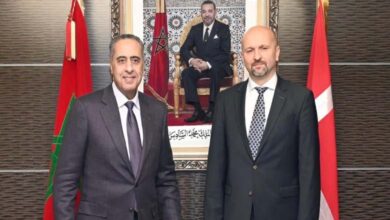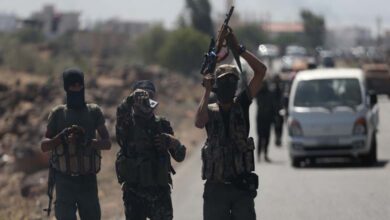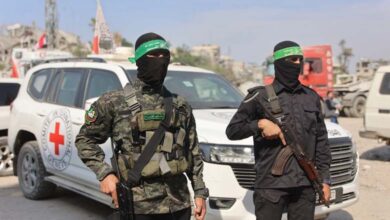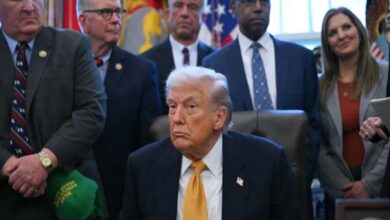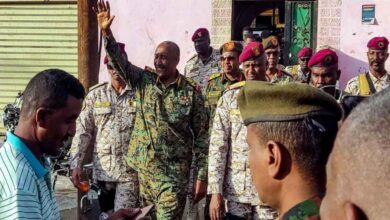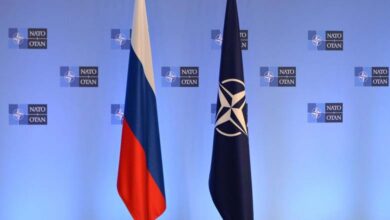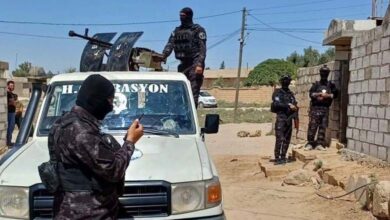Proposal “Under Negotiation” in Lebanon: 3 Elements, Guarantees, and Russian Role
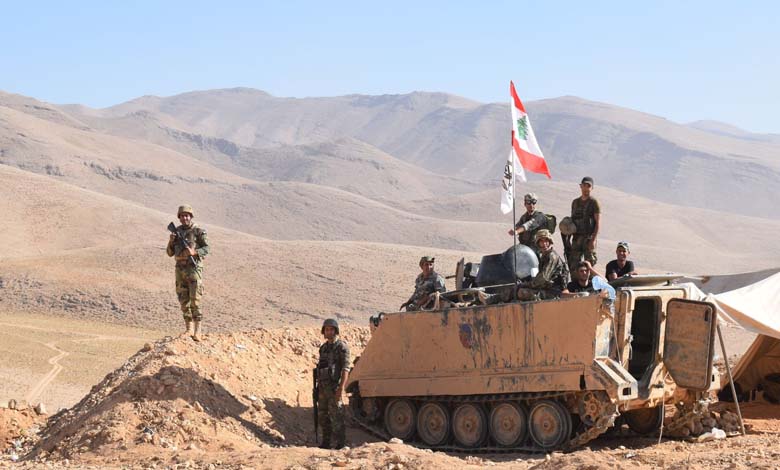
An agreement “in advanced stages” is being negotiated, involving the participation of several states, either in mediation or supervision of its implementation, to end the war in Lebanon.
-
Jabalia under Fire and Siege… and the “Ridwaan” Unit Bleeds in Lebanon
-
War Cuts “Bridges” Between Lebanon and Syria: Second Crossing Out of Service
The Israeli newspaper “Yediot Aharonot” revealed, on Tuesday, details of an agreement being discussed to establish a ceasefire in Lebanon.
This agreement, according to Israeli officials, has made significant progress and includes 3 components, with estimates indicating that U.S. envoy Amos Hochstein is expected to arrive in the region soon to finalize the details.
The newspaper stated: “Israeli officials assert that the ceasefire negotiations in Lebanon are at an advanced stage and have made significant progress.”
-
UN Fears the Gaza and Lebanon Wars Spreading to Syria
-
Lebanon Hopes for International Support to Address the Refugee Crisis
It added: “The White House special envoy, Amos Hochstein, may travel to Israel and Lebanon before the U.S. presidential elections taking place next Tuesday, in an effort to reach final agreements.”
It continued: “If the talks advance, the Israeli army will begin withdrawing most of its troops and redeploying its forces in southern Lebanon, leaving areas where its mission has been completed and likely remaining only where there is tactical significance.”
-
Political Analyst: Netanyahu Seeks Expansion and Annexation of Southern Lebanon under Military Cover
-
A step that could turn Lebanon upside down… Will “UNIFIL” leave?
The Situation Has Changed
“Yediot Aharonot” reports that Israeli officials have stated that “the situation in Lebanon has completely changed following the attack by the Israeli army, and there is an agreement in Beirut to separate the Lebanese and Gaza fronts,” but officials confirmed that fighting “will continue during the negotiations and until they are completed.”
Western intelligence sources, who spoke to the newspaper, believe that Iran will allow Hezbollah to agree to a ceasefire and may even encourage it, even if the fighting in Gaza has not ended.
-
Lebanon Breaks Yom Kippur Taboos in Israel… Ongoing Attacks and Statements
-
The Limited Fangs of War: Will Israel’s Losses Lead to Escalation in Lebanon?
Israeli officials stated that “the ceasefire agreement will begin with a 60-day acclimatization period during which Hezbollah and the Israeli army will refrain from firing, and the Lebanese army will deploy in the south, while a new mechanism for supervising the area will be considered, but no new resolution will be passed in the UN Security Council.”
Recently, French and American officials explained to the newspaper that Hezbollah, which has suffered severe strikes and lost most of its leaders, has strengthened over the past two weeks due to the increasing casualties among Israeli army soldiers. They added: “This is an opportunity that should not be missed.”
-
The October 1 Paradox: Israel returns to southern Lebanon after 18 years of withdrawal
-
Israel and the “Lebanon Truce”: The “Ministers’ Revolt” Undermines the “Biden-Macron” Proposal
3 Components
According to the newspaper, the proposed deal being negotiated among Israel, Lebanon, the United States, and other countries includes 3 components.
The first component is the broader implementation of UN Resolution 1701, which was issued after the Second Lebanon War in 2006, which would ensure that no elements of Hezbollah are present south of the Litani River, at a significant distance from the area.
The Lebanese army is expected to deploy between 5,000 to 10,000 soldiers along the border.
-
Reverse Migration from Lebanon Amid Israeli Escalation
-
From 1948 to 2024: A History of Wars Between Lebanon and Israel
The “UNIFIL” forces will also be increased, and some may be replaced by French, British, and German troops. Israel has contacted these countries to see if they would agree, according to the Israeli newspaper.
The second component is the establishment of an international mechanism to supervise the area and consider claims of violations from either side.
-
The Specter of Explosive “Pagers” Continues to Threaten Lebanon, Warns British Expert
-
Heaviest escalation between Hezbollah and Israel puts Lebanon on the brink of war
Here, Israeli officials stated that the United States agreed that if Hezbollah violated the agreement, for example by constructing fortifications south of the Litani, and if the Lebanese army or UNIFIL failed to respond promptly, the Israeli army would be able to take extended measures to eliminate the threat.
Israel has requested a letter from U.S. President Joe Biden affirming Israel’s right to self-defense, clarifying that the Israel Defense Forces would be able to act, and U.S. officials have not responded to questions regarding this matter.
-
After two years of presidential vacancy… Is the specter of war in Lebanon paving the way to Baabda?
-
Did Israel Manufacture Imitated Wireless Devices to Detonate in Lebanon?
The third component is to prevent Hezbollah from rearming, meaning preventing the entry of military means, which will be defined as prohibited, by air, land, or sea.
Russian Role
Russia has expressed its willingness to assist in implementing the agreement and is expected to play a role in stabilizing the region in Lebanon and Syria, according to “Yediot Aharonot.”
The newspaper reported that a foreign source stated: “The Russians will have a special role in preventing a new escalation.”
-
Was Nasrallah Injured in the Phone Explosions in Lebanon?
-
The “Empire” of Smuggling and Gold: Why Lebanon Grows Poorer While Hezbollah Becomes Wealthier
According to the same source, Israel will establish direct communication with the Kremlin and is interested in Russian participation, hoping it will contribute to implementing the agreement and reduce its reliance on U.S. participation.
The newspaper continued, stating that “Netanyahu‘s envoys are trying to recruit other countries to join the supervision of the suspended agreement, while Strategic Affairs Minister Ron Dermer has worked on this issue with U.S. National Security Advisor Jake Sullivan, while Defense Minister Yoav Gallant has discussed the matter with Hochstein.”


